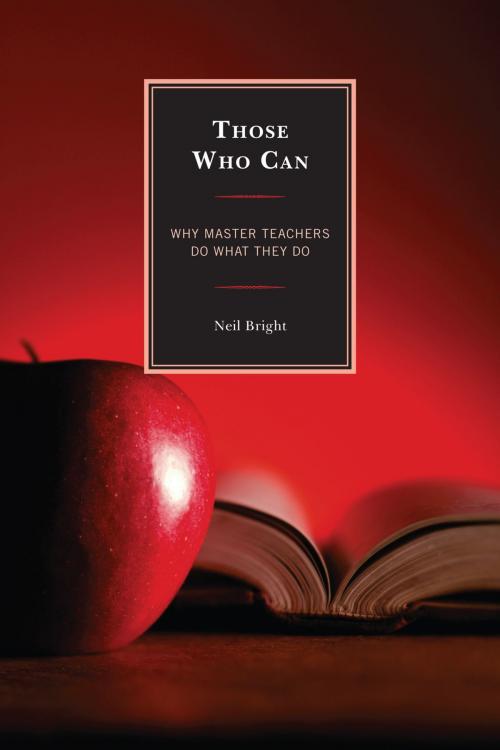Those Who Can
Why Master Teachers Do What They Do
Nonfiction, Reference & Language, Education & Teaching, Teaching, Teaching Methods| Author: | Neil Bright | ISBN: | 9781475801460 |
| Publisher: | R&L Education | Publication: | December 27, 2012 |
| Imprint: | R&L Education | Language: | English |
| Author: | Neil Bright |
| ISBN: | 9781475801460 |
| Publisher: | R&L Education |
| Publication: | December 27, 2012 |
| Imprint: | R&L Education |
| Language: | English |
In any endeavor, it is difficult to know what excellence is without knowing what excellence looks like. Linking theory and practice, Those Who Can: Why Master Teachers Do What They Do illustrates what instructional excellence “looks like” by detailing what eliteinstructors do and as importantly, why their pedagogical choices lead to uncommonly good student results.
Thoughtfully written, clearly explained, and thoroughly researched by a master educator with more than four decades of public school experience, Those Who Can providesschool administrators, education students, and teachers of all experience levels with a no-nonsense practical blueprint indicating what instructional strategies promote learning, what approaches undermine learner performance, and the behavioral principles underlying both outcomes.
In demystifying the so-called art of instruction, the approaches outlined in Those Who Can will improve student achievement with little investment other than the time it takes to read the book, the courage to implement its concepts, and an open-minded willingness to challenge the educational status quo of what is for the instructional promise of what could be.
In any endeavor, it is difficult to know what excellence is without knowing what excellence looks like. Linking theory and practice, Those Who Can: Why Master Teachers Do What They Do illustrates what instructional excellence “looks like” by detailing what eliteinstructors do and as importantly, why their pedagogical choices lead to uncommonly good student results.
Thoughtfully written, clearly explained, and thoroughly researched by a master educator with more than four decades of public school experience, Those Who Can providesschool administrators, education students, and teachers of all experience levels with a no-nonsense practical blueprint indicating what instructional strategies promote learning, what approaches undermine learner performance, and the behavioral principles underlying both outcomes.
In demystifying the so-called art of instruction, the approaches outlined in Those Who Can will improve student achievement with little investment other than the time it takes to read the book, the courage to implement its concepts, and an open-minded willingness to challenge the educational status quo of what is for the instructional promise of what could be.















